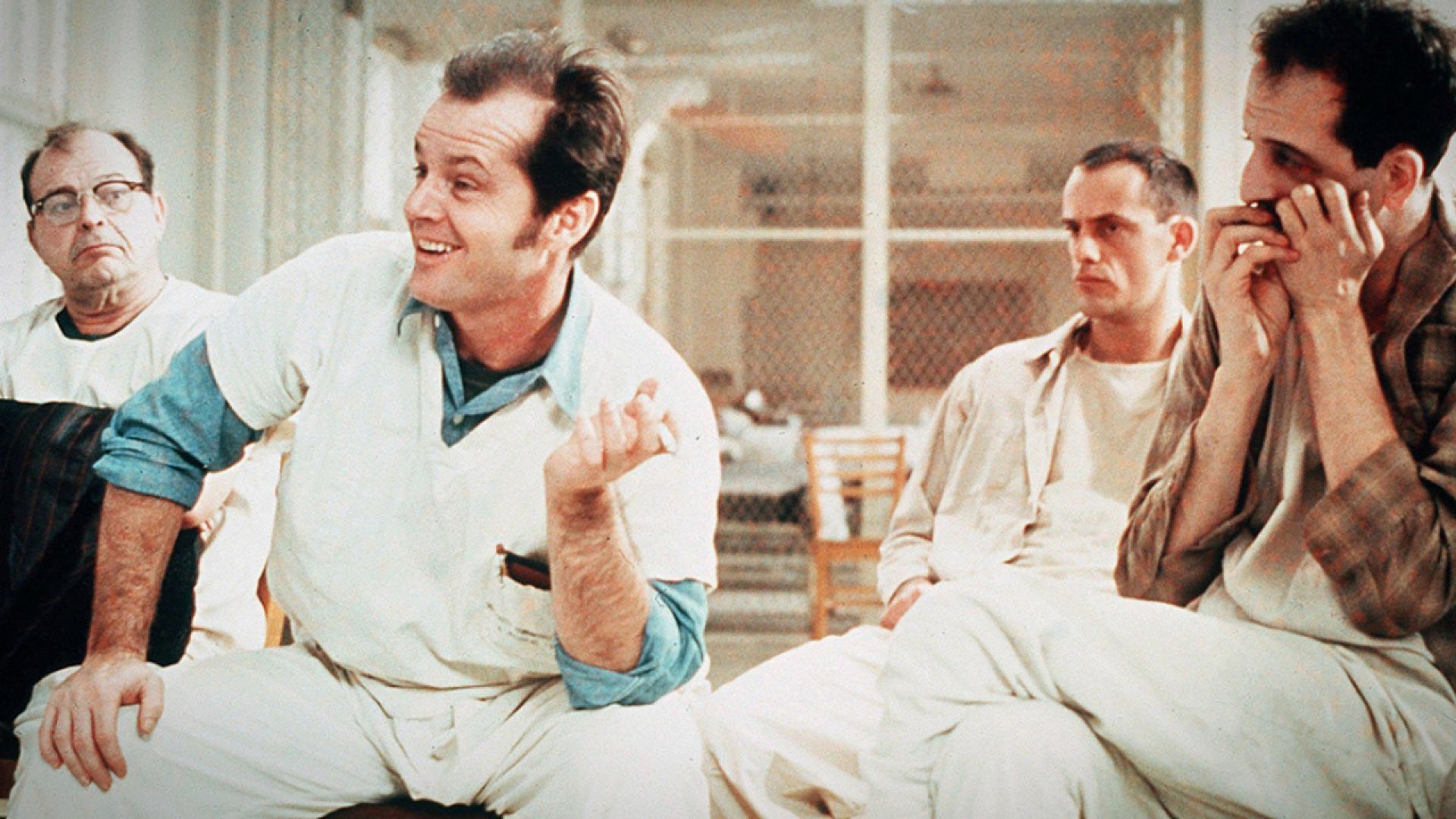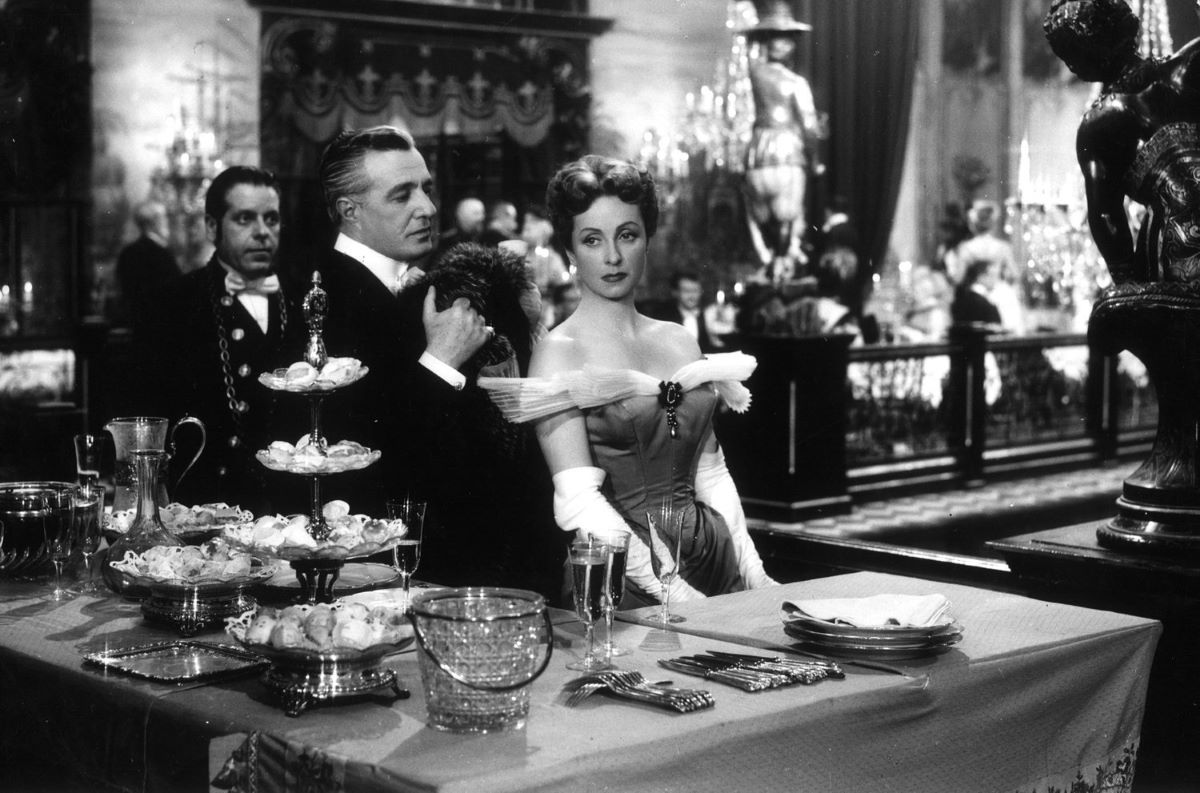One of Pauline’s pet theories was that a director’s finest work was nearly always done early on; she believed that as most directors aged and became wealthier and more famous, they became concerned with making grander and grander artistic statements, at which point they usually fell flat. And no director of the time was more concerned with the Big Idea than Stanley Kubrick, whose new film, A Clockwork Orange, opened at the end of 1971.
Based on the 1962 novel by Anthony Burgess, A Clockwork Orange was set in the not-too-distant future, where Britain has degenerated into a completely mechanized, brutal, soulless society. The perfect representative of this moral vacuum is the character Alex (Malcolm McDowell), a callous teenaged punk and head of his “droogs,” a gang that steals, tortures, and rapes just for the sheer pleasure of it. Eventually he is arrested and undergoes a brainwashing that neutralizes him, robbing him of his individuality. It was the type of grandiose topic with all the attendant portentousness that typically made Pauline wince. Prior to the film’s release, Kubrick held forth on the films significance in numerous interviews. He told The New York Times that Alex symbolized “man in his natural state, the way he would be if society did not impose its ‘civilizing’ process upon him. What we respond to subconsciously is Alex’s guiltless sense of freedom to kill and rape, and to be our savage natural selves, and it is in this glimpse of the true nature of man that the power of the story derives.”
Many in the press felt that Kubrick had turned out a genuinely great film, bur there were a few dissenters: Richard Schickel disliked the fact that Alex had been “directed toward cuteness at every opportunity,” and that his victims were all malignant and grotesque, resulting in “a viciously rigged game.” Andrew Sarris predicted that his colleagues in the New York Film Critics Circle and National Society of Film Critics would select A Clockwork Orange as the year’s best picture, adding “If such a catastrophe has indeed occurred, I disclaim all responsibility.”
Pauline believed she had a clear-eyed view of Kubrick’s intentions. At the end of the picture, when Alex’s former victims turn on him and he reverts to his old, corrupt self, she grasped that Kubrick intended it as “a victory in which we share . . . the movie becomes a vindication of Alex, saying that the punk was a free human being and only the good Alex was a robot.” She was deeply disturbed by Kubrick’s grotesque portrayal of the victims, which she found “symptomatic of a new attitude in movies. This attitude says there’s no moral difference. Stanley Kubrick has assumed the deformed, self-righteous perspective of a vicious young punk who says, ‘Everything’s rotten. Why shouldn’t I do what I want? They’re worse than I am.’ In the new mood . . . people want to believe the hyperbolic worst, want to believe in the degradation of the victims—that they are dupes and phonies and weaklings. I can’t accept that Kubrick is merely reflecting this post-assassination, post-Manson mood. I think he’s catering to it. I think he wants to dig it.”
While she made it clear that she in no way advocated censorship, she felt that she and her colleagues had to speak out against the “corrupt” morality that so many directors were attempting to force-feed the gullible public:
At the movies, we are gradually being conditioned to accept violence as a sensual pleasure. The directors used to say they were showing us its real face and how ugly it was in order to sensitize us to its horrors. You don’t have to be very keen to see that they are now in fact desensitizing us. They are saying that everyone is brutal, and the heroes must be as brutal as the villains or they turn into fools. . . . There seems to be an assumption that if you’re offended by movie brutality, you are somehow playing into the hands of the people who want censorship. . . . Actually, those who believe in censorship are primarily concerned with sex, and they generally worry about violence only when it’s eroticized. This means that practically no one raises the issue of the possible cumulative effects of movie brutality. Yet surely, when night after night atrocities are served up to us as entertainment, it’s worth some anxiety. We become clockwork oranges if we accept all this pop culture without asking what’s in it. How can people go on talking about the dazzling brilliance of movies and not notice that the directors are sucking up to the thugs in the audience?
Her impassioned argument, however, fell mostly on deaf ears: A Clockwork Orange became an immense success, one of the year’s most widely discussed films.
Source: Brian Kellow, Pauline Kael: A Life in the Dark, 2011




